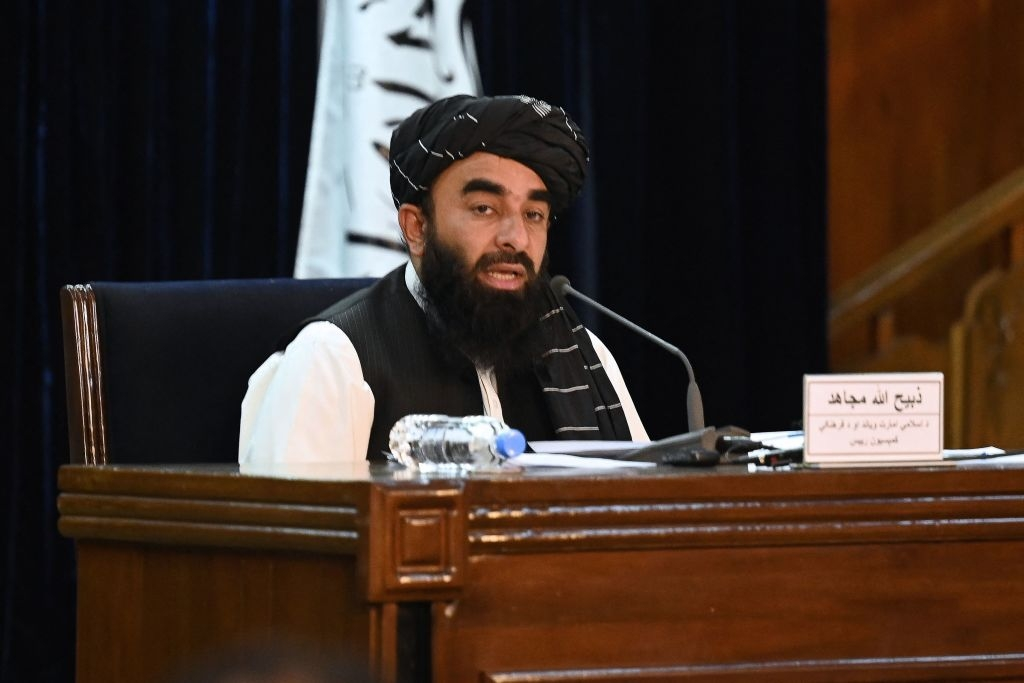Turkey: NATO’s Pro-Russian, Taliban-Friendly Ally

Around the Taliban, and in a bizarre combination of convergence of interests and ideological kinship, a new anti-Western circle is evolving, including a willing NATO member state…. anti-Western sentiments are bringing together these regional powers, who are now courting Afghanistan’s radical rulers.
The hard lesson learned from relying on an “ally” for critical production, then needing to reshore that capability as politics change, ultimately will cost U.S. taxpayers between $500 million and $600 million in nonrecurring engineering costs, according to Ellen Lord, the previous Under Secretary of Defense for Acquisition.
U.S. President Joe Biden’s Afghan drama will spur a number of anti-Western alliances based on different anti-Western calculations. Proof? Just look at the names of the countries on Taliban’s invitation list for its birthday party.
The Taliban, since its founding in 1994, has been using the most notorious shariah-based law enforcement, including beheadings, stoning women to death, forcing burqas on women, killing girls who are students, gang-raping, locking women in their homes and various other medieval practices. Now, for the first time in NATO’s history, a member nation’s president, Recep Tayyip Erdoğan, has said that the Taliban’s interpretation of Islam does not contradict Turkey’s.
A love affair with Islam, in fact, seems to be blossoming. At the end of August, the Taliban asked Turkey for technical support to run Kabul’s airport. Pro-Hamas, Islamist allies Turkey and Qatar have since been discussing with the Taliban conditions for reopening the Hamid Karzai Airport; only the security issue of technicians, private companies and security staff who will be running the airport remains a concern. On September 2, Turkey said it was evaluating proposals from the Taliban and others for the safe operation of Kabul’s airport after the radical group’s return to power in Afghanistan.
“We have held our first talks with the Taliban, which lasted three and a half hours,” Erdoğan told reporters August 27. “If necessary, we will have the opportunity to hold such talks again.”
Turkish Foreign Minister Mevlüt Çavuşoğlu also mentioned on September 6 that Turkey was in “direct talks” with the Taliban concerning the future of Afghanistan. “After all,” the minister said, “It would be wrong for Turkey to completely pull out of Afghanistan.”
The emerging alliance between Turkish Islamists and Afghan radicals does not look unrequited. Taliban spokesman Zabihullah Mujahid stated that a Turkish technical team had already arrived in Kabul this month to help reopen its airport for domestic and international flights. A draft deal revealed by Middle East Eye in August included provisions that would see Turkey recognize the Taliban as the legitimate government of Afghanistan and provide security at the Kabul airport through a private firm.
On September 6, Al Jazeera reported that the Taliban had invited Turkey, China, Russia, Iran, Pakistan and Qatar to attend a ceremony announcing a new Afghan government after the dramatic U.S. withdrawal. Turkey is the only NATO member nation on the Taliban’s guest list of countries. It is the only country with an official (candidacy) link to the European Union.
Around the Taliban, and in a bizarre combination of convergence of interests and ideological kinship, a new anti-Western circle is evolving, including a willing NATO member state.
Islamist ideology is not the only motive for Turkey in joining the Taliban-centric group of unofficial allies. Russia, for instance, does not recognize the Taliban. Anti-Western sentiments are bringing together these regional powers, who are now courting Afghanistan’s radical rulers.
Turkey’s partnership in the U.S.-led, multinational consortium that builds the F-35 fighter jet was suspended after Ankara decided to acquire the Russian-made S-400 air defense system. The decision cost Turkey’s defense industry $10 billion worth of lost contracts and U.S. (CAATSA) sanctions. The damage, moreover, is not unilateral. The hard lesson learned from relying on an “ally” for critical production, then needing to reshore that capability as politics change, ultimately will cost U.S. taxpayers between $500 million and $600 million in nonrecurring engineering costs, according to Ellen Lord, the previous Under Secretary of Defense for Acquisition.
On the Turkish side, the lesson seems not to have been learned at all. Russian state-run arms exporter Rosoboronexport said at the end of August that it may soon sign a new contract with Turkey for the supply of more S-400 air defense missile systems. “Consultations are continuing. I believe they are already at their final stage,” its Director General Alexander Mikheev said at the International Military-Technical Forum, Army-2021, without disclosing details of the possible contract.
Confirming that, Erdoğan said on August 29 that Turkey has no hesitations about purchasing a second batch of the S-400s from Russia. “Regarding … the purchase of the second [S-400] package and so on; we have no hesitation regarding these matters. We have taken many steps with Russia, whether it be the S-400 or the defense industry,” Erdoğan told reporters.
Russia’s military engagement with Turkey may not be limited to an advanced air defense system only. The Director of Russia’s Federal Service for Military-Technical Cooperation, Dmitry Shugayev, has signaled that Moscow and Ankara are in talks over possible joint ventures concerning Turkey’s efforts to build a new indigenous fighter aircraft, the TF-X. “At this stage, consultations are underway with the Turkish side at the level of specialized groups on the issues of interaction in creating the Turkish national fighter.” Shugayev said.
U.S. President Joe Biden’s Afghan drama will spur a number of anti-Western alliances based on different anti-Western calculations. Proof? Just look at the names of the countries on Taliban’s invitation list for its birthday party.
